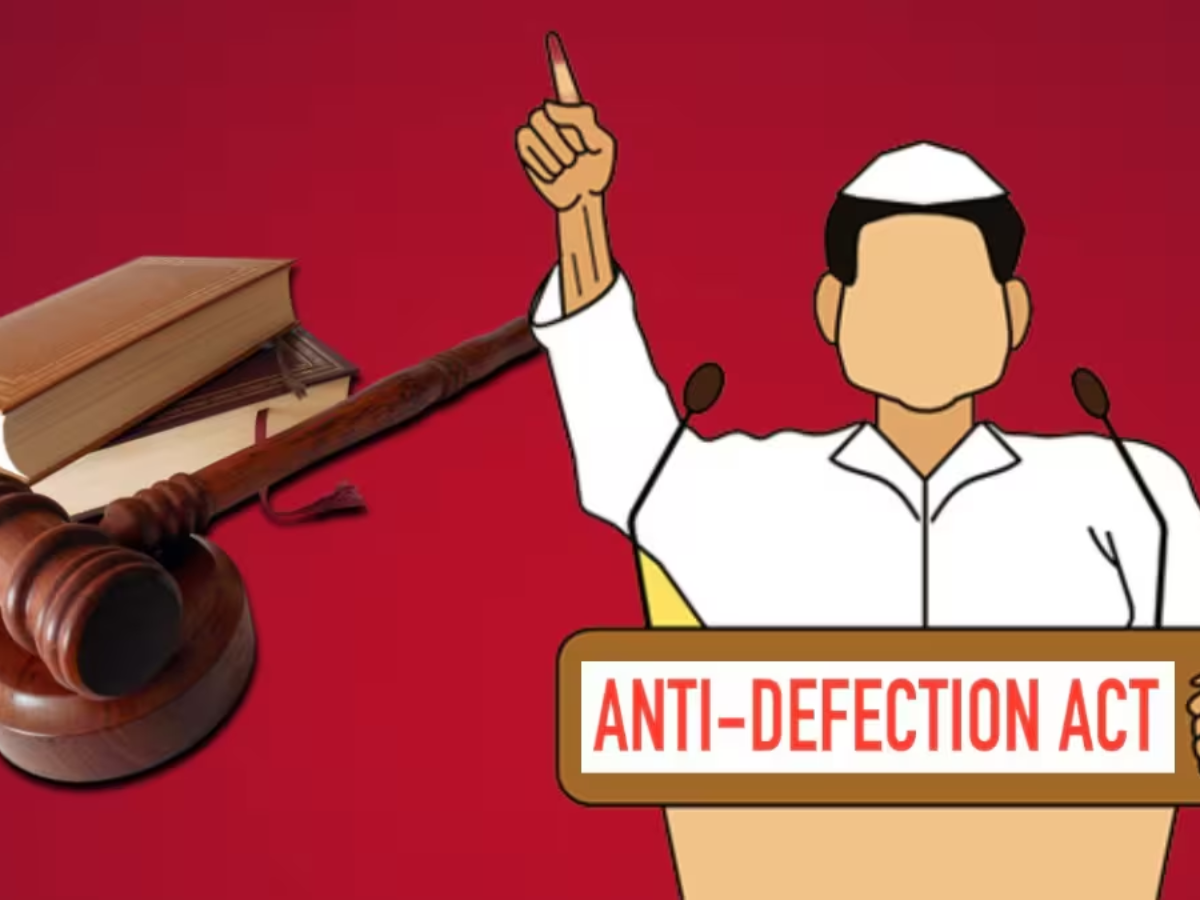The Supreme Court on Thursday directed the Telangana Assembly Speaker to decide within three months on the disqualification of Bharat Rashtra Samithi (BRS) MLAs who had switched allegiance to Congress.
The apex court ruling comes on an appeal filed by BRS MLAs against a division bench decision of the Telangana High Court that had ordered the fixing of a schedule for the Telangana Speaker to decide over the disqualification petitions against the MLAs.
The Court in its judgement also acknowledged that it does not have advisory jurisdiction but stated that it is for Parliament to consider whether the current system, where the Speaker or Chairman decides disqualification cases under the Tenth Schedule, is effectively addressing political defections or not.
What Is Defection?
In layman’s terms, defection refers to switching political allegiance, particularly when a member of a political party leaves the party and joins another or becomes independent.
To prevent or discourage defection by imposing penalties on politicians who switch parties or otherwise violate party discipline, in 1985, through the Constitution 52nd Amendment Act under the 10th schedule, the Anti-Defection Law was enacted.
What Is the Anti-Defection Law?
The anti-defection laws were implemented to ensure that politicians are held accountable to the voters and to maintain the stability and cohesion of political parties.
As per the PRS, the Tenth Schedule was added to the Constitution to prevent political defections and to curb such defections that undermine the foundations and principles of Indian democracy.
Key Provisions Under Anti-Defection Law
Disqualification on the ground of defection: 1. A legislator belonging to a political party will be disqualified if he: (i) voluntarily gives up his party membership, or (ii) votes/abstains from voting in the House contrary to the direction issued by his political party.
2. A member is not disqualified if he has taken prior permission of his party, or if the voting or abstention is condoned by the party within 15 days.
3. Independent members will be disqualified if they join a political party after getting elected to the House. Nominated members will be disqualified if they join any political party six months after being nominated.
Exemptions in cases of merger: Members are exempted from such disqualification when at least two-thirds of the original political party merges with another political party.
Further, the members must have become members of the party they have merged with/into, or they should not have accepted the merger and choose to function as a separate group.
Decision-making authority: The decision to disqualify a member from the House rests with the Chairman/Speaker of the House.
Disqualification Under Constitutional Provisions
Under Article 102, several provisions of disqualifications for membership of Parliament are given. It reads, “A person shall be disqualified if he holds any office of profit, if he is of unsound mind and stands so declared by a competent court, if he is an undischarged insolvent, if he is not a citizen of India, or has voluntarily acquired the citizenship of a foreign State.”
A member of Parliament shall also be disqualified for being a member of either House of Parliament if he is so disqualified under the Tenth Schedule, as mentioned above.
The Constitution provides for the same provision for the members of legislative assemblies and councils. Article 191 (2) states that a person shall be disqualified from being a member of the Legislative Assembly or Legislative Council of a State if he is so disqualified under the Tenth Schedule.
ALSO READ: Breaking: O Panneerselvam Exits BJP-led NDA, Alleges Not Being Able To Meet PM Modi






